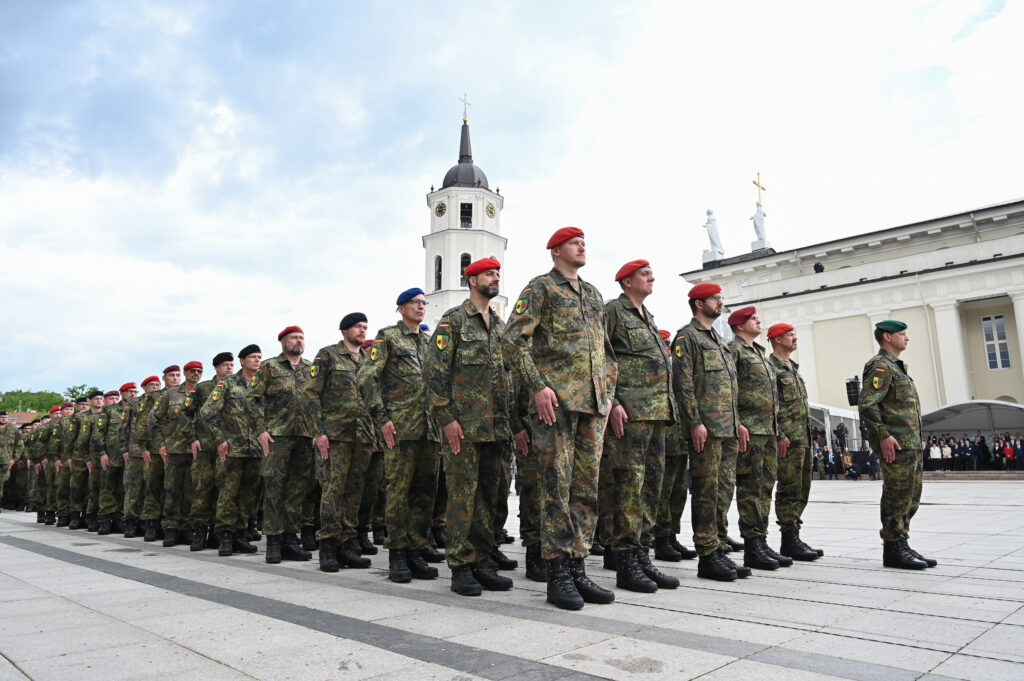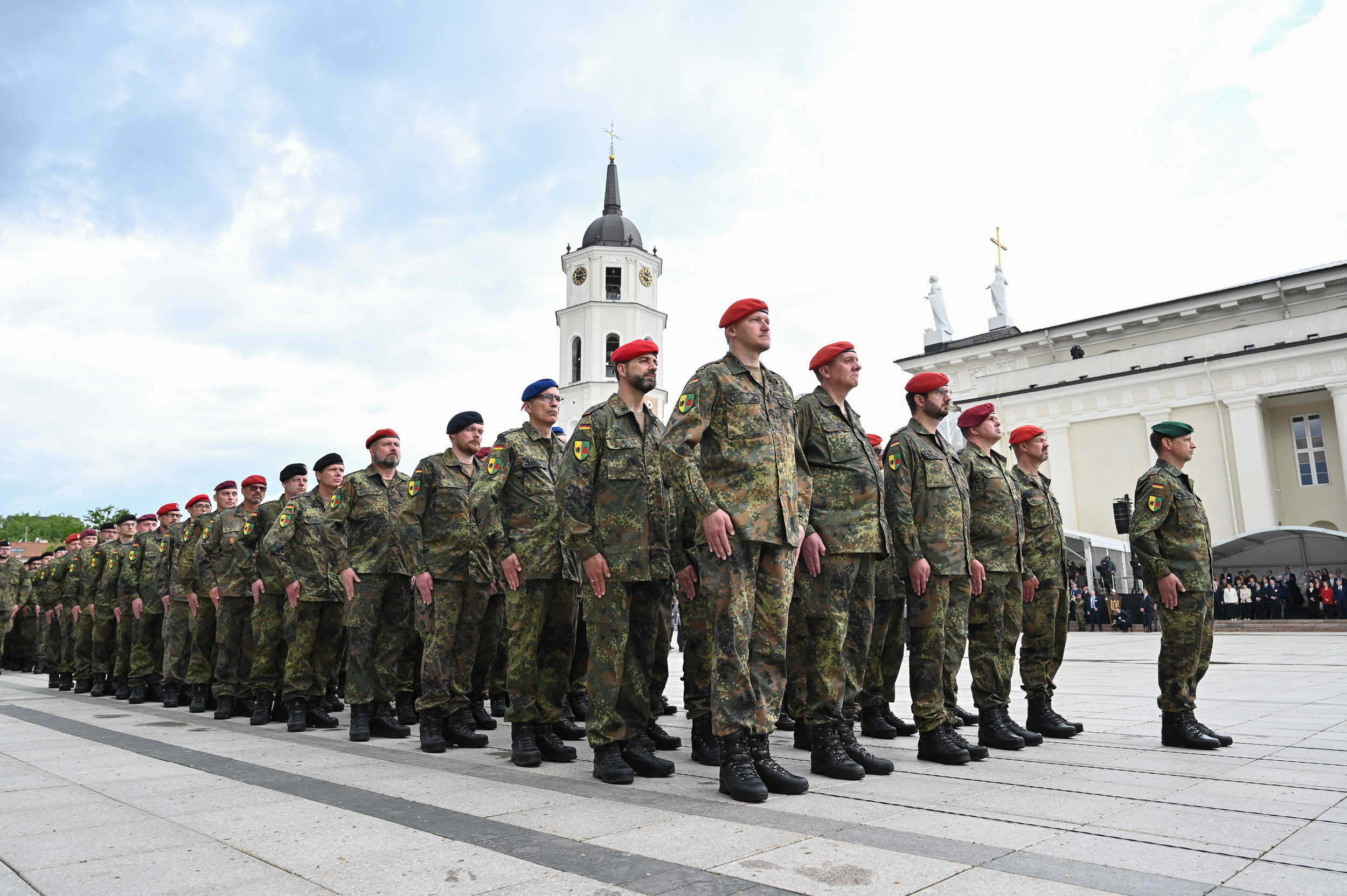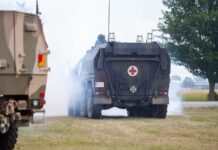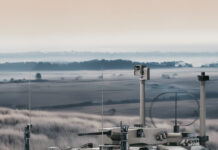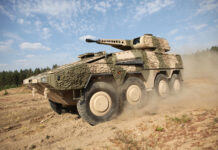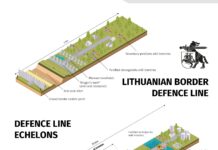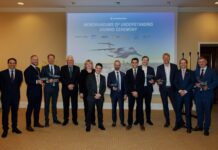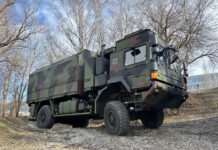Germany has established its first permanent foreign troop deployment since the Second World War with the formation of the 45th Armoured Brigade (Panzerbrigade 45) in Lithuania.
An activation ceremony for the brigade was held in the Lithuanian capital, Vilnius, on 22 May 2025 and was attended by German Chancellor Friedrich Merz and German Defence Minister Boris Pistorius.
The 45th Armoured Brigade, which is the Bundeswehr’s ninth brigade, will comprise 4,800 military personnel and 200 civilian staff and is scheduled to be fully operational by 2027 as a deterrent to any further Russian military aggression in Europe. The brigade’s main base is in the Rudninkai military training area in southeastern Lithuania, around 30 km from the Belarusian border. Infrastructure at the base is still being built up.
The Lithuanian Brigade, as the 45th Armoured Brigade is also known, subordinate to 10 Armoured Division, one of the Bundeswehr’s four divisions, and will consist of several battalions. The 203rd Panzer Battalion and the 122nd Mechanized Battalion, armed respectively with Leopard 2A6 main battle tanks and Puma infantry fighting vehicles, will become the unit’s core.
Merz said at the activation ceremony in Vilnius, “Anyone who challenges NATO must know that we are prepared. Anyone who threatens any ally must know that the entire Alliance will jointly defend every inch of NATO territory.
“NATO can rely on Germany,” the chancellor said. “We know that security doesn’t begin at our borders. It begins where our allies and partners have to defend it. That’s why Lithuania’s security is also our security. The protection of Vilnius is the protection of Berlin.”
Pistorius had been pushing for the establishment of the Lithuania brigade since mid-2023. Merz, meanwhile, who is the first German chancellor to have served in the Bundeswehr, is similarly intent to build up Germany as a strong NATO ally and has already successfully changed German budgetary legislation to allow greater military spending. On 14 May 2025, during his first major speech to parliament after his election as chancellor on 6 May, Merz pledged to turn the Bundeswehr into “the strongest conventional army in Europe”.
Merz told parliament, “This is appropriate for Europe’s most populous and economically powerful country. Our friends and partners also expect this from us. Indeed, they practically demand it.”
The chancellor added, “Strength deters aggressors, while weakness invites aggression.”
